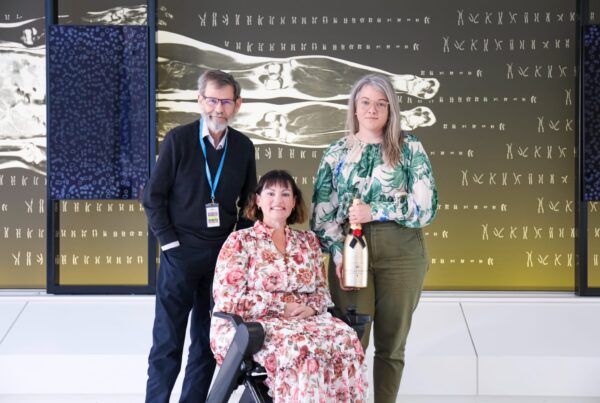Perth gains NATA-accreditation for rare disease diagnostic tool
Read More
Reproductive carrier screening
Reproductive carrier screening allows couples to know their chances of having children with recessive genetic disorders. Prof Laing has written about and advocated for carrier screening for nearly thirty years – starting in the early 1990s. The advent of multiple parallel, or next generation sequencing meant that the technology was available to screen hundreds of genes simultaneously in carrier screening. Professor Laing was one of the organisers of an Australian-led satellite workshop on carrier screening at the European Society of Human Genetics meeting in Glasgow in 2015. In 2016 he chaired a workshop of Australasian researchers interested in carrier screening at the Harry Perkins Institute. From those meetings arose the West Australian Preconception carrier screening project funded by the Zac Pearson Legacy and the Helen Leach Endowment, which screened 225 WA couples for >470 genes. Also from the meeting at the Perkins, arose a collaboration between Professor Edwin Kirk in Sydney, Professor Martin Delatycki in Melbourne and Professor Laing in Perth, which led the research advocacy that coincided with the advocacy of Rachael and Jonathan Casella and patient support groups that resulted in the funding of Mackenzie’s Mission. Mackenzie’s Mission is named after Rachael and Jonathan Casella’s daughter Mackenzie Casella, who died at seven months of age from spinal muscular atrophy in October 2017. Rachael and Jonathan lobbied the Australian Federal Government for funding to research carrier screening, ultimately meeting with Federal Health Minister Greg Hunt. As Rachael Casella describes in her book “Mackenzie’s Mission”, Minister Hunt was already thinking along similar lines and was fully on board with researching carrier screening. This led to the announcement of Mackenzie’s Mission, the Australian Reproductive Carrier Screening Project, in the Australian Federal Budget of 2018 as a $20m research project, funded by the Australian Medical Research Future Fund as the first project of the Genomics Health Futures Mission. Mackenzie’s Mission aims to screen 10,000 Australian couples distributed across the entire geographic spread of this huge country for, in the first iteration, 1300 genes associated with 750 severe recessive disorders. Mackenzie’s Mission is to run to the end of 2021.
Development of improved diagnostics
The coding region of the gene mutated in Duchenne muscular dystrophy was fully cloned in 1987. This was the first neuromuscular disease gene identified through what was then called “the new genetics” – identifying disease genes through their position in the human genome. Many hundreds of genes have now been associated with neuromuscular and other disorders including by Professor Laing. Simultaneously, improvements in genetic technologies have made it feasible to analyse more and more genes to determine the precise cause of genetic diseases in patients. The Preventive Genetics Group has played a significant role in improving diagnosis for neuromuscular diseases in particular, but also for other disease types, pioneering the application of new technologies to do so. This research is continuing in the Group
Development of treatments for genetic muscle diseases
Once disease genes have been identified, it is possible to investigate the pathobiology of the associated diseases (how the disease-causing genetic variants actually cause the disease) and then use evidence-based medicine to develop treatments for the diseases. Some time ago now, the Group identified that heart actin could be used to treat skeletal muscle actin diseases in preclinical models. The Group is continuing to research methods of turning this knowledge into clinically applicable treatments for patients. At the same time, the Group is investigating therapies for other genetic muscle diseases.


